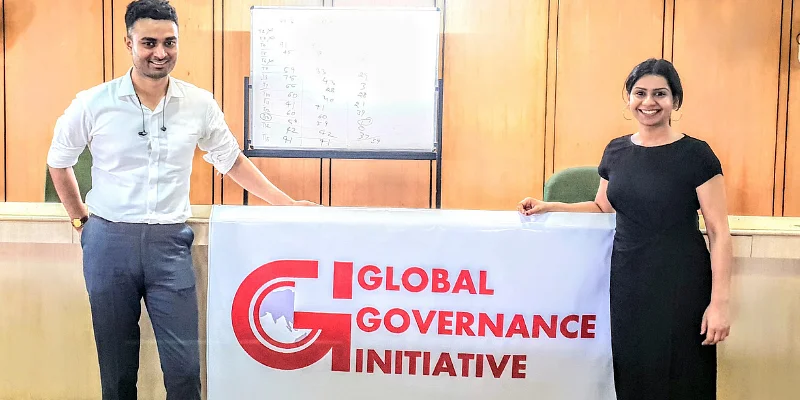
The Exploitative Taxation System in India: Insights from Naman Shrivastava
Naman Shrivastava, an insightful commentator on Indian politics and economics, recently discussed the pressing issues surrounding India’s taxation system in one of his YouTube videos. Naman, who initially aspired to become a civil servant and appeared for the Union Public Service Commission (UPSC) Civil Services Examination, has dedicated his efforts to educating the masses about the various ills within the government. His recent video sheds light on how the Indian taxation system is exploitative and disproportionately burdensome on the middle class and the poor.
The Burden on the Middle Class
Naman argues that the Indian taxation system heavily relies on indirect taxes, which are inherently regressive. This means that whether you are a billionaire or a driver, you pay the same amount of tax on everyday goods and services. For instance, both a wealthy individual and a common worker pay the same percentage of GST on items like packaged ghee or children’s toffees. This structure places an undue burden on those with lower incomes, as the relative impact of these taxes is much higher on them.
Narrow Direct Tax Base
One of the significant issues highlighted by Naman is the narrow direct tax base in India. Only a small fraction of the population pays income tax, leading to an over-reliance on indirect taxes. This scenario forces the government to squeeze the middle class and the poor further, as they are taxed on their income, investments, and even essential commodities like air, which has led to the booming air purifier industry in urban areas.
Indirect Taxes: A Major Concern
Naman emphasizes that the over-reliance on indirect taxes makes daily commodities in India expensive, hitting the middle and lower classes the hardest. This issue is compounded by the fact that these taxes do not consider the taxpayer’s ability to pay. The middle class, despite paying income tax, capital gains tax, and various other levies, finds little to no respite as they continue to be taxed on virtually every aspect of their life, including severance pay when they lose their jobs.
The Accountability Gap
Naman also points out a significant problem: the lack of a social contract. The principle of “no taxation without representation” is foundational to democratic systems. However, in India, the majority of people believe they do not pay taxes since they do not pay income tax. This misconception leads to a lack of accountability, as people do not question how the government spends tax revenue. This situation benefits the wealthy, who can avoid these indirect burdens, and leaves the middle and lower classes with little recourse.
The Role of Information
Another critical point Naman brings up is the widespread misinformation and lack of critical analysis among the populace. Many rely on unreliable sources like WhatsApp forwards and YouTube videos without verifying the credibility of the information. This lack of informed discourse contributes to the perpetuation of systemic issues within the taxation system.
A Call for Change
Naman’s video is a call to action. He urges the people of India to critically analyze the work of the government and demand better governance. By broadening the tax base and reducing reliance on indirect taxes, the government can provide better services and ensure a more equitable system. He emphasizes that this change will require effort and a shift in mindset but is essential for the country’s progress.
Naman Shrivastava’s insightful commentary on India’s taxation system highlights the urgent need for reform. His dedication to educating the public and encouraging critical analysis of governmental policies is commendable. By addressing these issues, Naman hopes to inspire a more informed and proactive citizenry, ultimately leading to a more just and equitable society.
About Naman Shrivastava
Early Life and Education
Naman Shrivastava was born and raised in Gwalior, Madhya Pradesh, India. Growing up in a city known for power cuts, crime, and economic challenges, Naman faced adversity from an early age. However, he persevered and went on to achieve remarkable success.
UPSC Journey
Naman initially aspired to become a civil servant and appeared for the Union Public Service Commission (UPSC) Civil Services Examination. Despite facing the high failure rate in the UPSC CSE, he did not let setbacks define his future. In fact, he took to Twitter to share his experiences and motivate other aspirants. His thread on “how even after failing in UPSC, an aspirant can have a good future” went viral, resonating with countless young people who grapple with exam-related stress and anxiety1.
Professional Accomplishments
CEO of Global Governance Initiative (GGI): Naman Shrivastava currently serves as the Chief Executive Officer at GGI, a policy consulting, management, and sustainability platform. GGI collaborates with public officials and organizations to drive positive change and address critical issues.
Advisor to Senior Public Officials: Naman has advised senior public officials both in India and at the United Nations. His insights and expertise contribute to policy formulation and implementation.
Recipient of the Harry Ratliffe Memorial Award: Naman’s outstanding contributions earned him the prestigious Harry Ratliffe Memorial award, recognizing his dedication and impact in the field.
Educational Background
Naman Shrivastava holds degrees from renowned institutions:
-
Harvard University: He pursued studies at Harvard, enhancing his knowledge and skills.
-
Fletcher School of Law and Diplomacy: Naman’s educational journey also led him to the Fletcher School, where he further honed his expertise.
Beyond Academics
Naman is not just a scholar; he is a dynamic speaker who has participated in international summits organized by the World Economic Forum and the United Nations. His insights on global issues and sustainable development have left a lasting impact.
